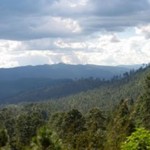 The Parliament of Honduras has adopted a new law to protect the country's tropical forest. The Honduras National Congress thus took a good decision: even though Honduras is one of the poorest countries in Latin America, it will increase its efforts for forest protection in future. In that way, it is sending a signal against the destruction of tropical forests while simultaneously conserving its greatest natural resource.
The Parliament of Honduras has adopted a new law to protect the country's tropical forest. The Honduras National Congress thus took a good decision: even though Honduras is one of the poorest countries in Latin America, it will increase its efforts for forest protection in future. In that way, it is sending a signal against the destruction of tropical forests while simultaneously conserving its greatest natural resource. The new tropical forest protection law strengthens the role of the public forest supervision authority and provides a sound basis for its financing. This decision remedies what used to be a long-standing weakness in the forest administration system. The law also gives communities a greater say in forest control and provides for severe sanctions for illegal logging.
Over several years, Germany provided assistance in formulating the law. Its adoption by Parliament is a success for Honduras and for German development cooperation. It is evidence that development cooperation can make a great difference, not just through technical assistance but also through institution-building and involvement in the drafting of legislation. German development cooperation will assist Honduras in implementing the law over the coming years.
Half of the territory of Honduras is covered by forest. The country has one of the largest forest areas in Central America, and one of those with the highest biological diversity. Illegal logging and the spread of agriculture are destroying some two per cent of the forest each year. Over the past 30 years, Honduras has lost about 35 per cent of its forest area.
Cooperation between Honduras and Germany
Honduras enjoys friendly relations with Germany. The Federal Republic is Honduras’ most important European trading partner. In particular, the assistance afforded by German institutions, private and public, in the wake of Hurricane Mitch was highly valued by Honduras. German development cooperation focuses on education, environmental protection and natural resource conservation, and private-sector promotion.
Honduras determined to protect tropical forest
The Parliament of Honduras has adopted a new law to protect the country's tropical forest. The Honduras National Congress thus took a good decision: even though Honduras is one of the poorest countries in Latin America, it will increase its efforts for forest protection in future. In that way, it is sending a signal against the destruction of tropical forests while simultaneously conserving its greatest natural resource.
The new tropical forest protection law strengthens the role of the public forest supervision authority and provides a sound basis for its financing. This decision remedies what used to be a long-standing weakness in the forest administration system. The law also gives communities a greater say in forest control and provides for severe sanctions for illegal logging.
Over several years, Germany provided assistance in formulating the law. Its adoption by Parliament is a success for Honduras and for German development cooperation. It is evidence that development cooperation can make a great difference, not just through technical assistance but also through institution-building and involvement in the drafting of legislation. German development cooperation will assist Honduras in implementing the law over the coming years.
Half of the territory of Honduras is covered by forest. The country has one of the largest forest areas in Central America, and one of those with the highest biological diversity. Illegal logging and the spread of agriculture are destroying some two per cent of the forest each year. Over the past 30 years, Honduras has lost about 35 per cent of its forest area.



